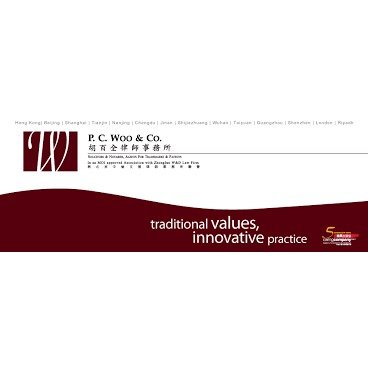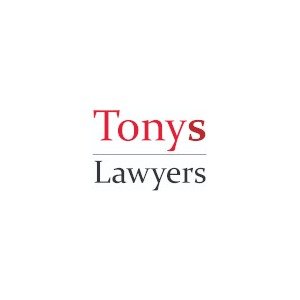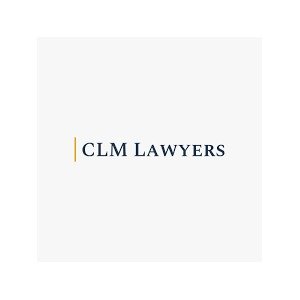Best Nonprofit & Charitable Organizations Lawyers in Central
Share your needs with us, get contacted by law firms.
Free. Takes 2 min.
List of the best lawyers in Central, Hong Kong
About Nonprofit & Charitable Organizations Law in Central, Hong Kong
Nonprofit and charitable organizations in Central, Hong Kong, play a crucial role in addressing various social, educational, and health-related issues. Governed by specific laws and regulations, these organizations operate under a framework that ensures accountability, transparency, and public trust. The legal structure often involves compliance with tax exemptions, fundraising activities, and corporate governance to safeguard assets and donor interests. Central, as a prominent business hub, provides a conducive environment for such organizations to thrive, supported by a dedicated legal framework to manage their operations effectively.
Why You May Need a Lawyer
Engaging a lawyer experienced with nonprofit and charitable organizations is essential for several reasons. Common situations requiring legal assistance include:
- Setting up a new nonprofit: Legal expertise can help navigate incorporation, tax exemption applications, and drafting bylaws.
- Compliance issues: Lawyers ensure adherence to regulatory requirements and avoid penalties or legal challenges.
- Contract review: Legal advice is crucial in reviewing contracts with vendors, donors, and partnerships to mitigate risks.
- Dispute resolution: Whether internal or external, legal counsel can help resolve conflicts efficiently.
- Corporate governance: Establishing sound governance practices requires legal input to ensure accountability and transparency.
Local Laws Overview
Nonprofits in Central, Hong Kong, are subject to several key legal aspects:
- Incorporation: Typically registered under the Companies Ordinance as Companies Limited by Guarantee, requiring a specific memorandum and articles of association.
- Tax exemptions: Governed by the Inland Revenue Ordinance, organizations must apply for tax-exempt status with the Inland Revenue Department.
- Fundraising regulations: Complying with the Public Fundraising Permits managed by the Social Welfare Department is essential for legal fundraising activities.
- Charitable status: Recognition by the Inland Revenue Department is necessary to qualify for charitable status and associated benefits.
- Corporate governance: Compliance with the corporate governance code is vital for maintaining trust and legal standing.
Frequently Asked Questions
What is the process of setting up a nonprofit organization in Hong Kong?
To set up a nonprofit, you typically register as a Company Limited by Guarantee under the Companies Ordinance and apply for charitable status with the Inland Revenue Department.
Do all nonprofits qualify for tax-exempt status?
No, only organizations that meet the criteria and have been recognized by the Inland Revenue Department as charitable under the Inland Revenue Ordinance qualify for tax exemptions.
What are the annual filing requirements for nonprofits?
Nonprofits must file annual returns, financial statements, and tax returns with the Companies Registry and the Inland Revenue Department, even if tax-exempt.
Can a nonprofit engage in commercial activities?
Yes, but any profit generated must be used to further the organization’s charitable objectives, and such activities should not jeopardize its tax-exempt status.
What governance structures must a nonprofit have?
A nonprofit should have a board of directors to oversee its operations, ensure accountability, and comply with legal obligations under the corporate governance code.
Are there specific laws governing fundraising activities?
Yes, fundraising activities are regulated, requiring permits from the Social Welfare Department, and must comply with specific guidelines to ensure transparency.
Is it possible to change the objectives of a nonprofit after registration?
Yes, changes are possible but must be approved by the Companies Registry and, if relevant, the Inland Revenue Department.
What penalties do nonprofits face for non-compliance?
Penalties include fines, loss of tax-exempt status, or deregistration by authorities if legal and regulatory requirements are not met.
Can foreign nonprofits operate in Hong Kong?
Yes, but they must comply with local registration requirements and legal obligations like any domestic nonprofit to conduct activities in Hong Kong.
How can a nonprofit ensure compliance with anti-money laundering laws?
Nonprofits must establish internal policies, conduct proper due diligence on donors, and report suspicious activities to comply with anti-money laundering regulations.
Additional Resources
If you are seeking more information or resources related to nonprofit and charitable organizations in Hong Kong, consider the following:
- The Companies Registry: For registration and compliance details.
- The Inland Revenue Department: For tax-related inquiries and tax-exempt applications.
- The Social Welfare Department: For fundraising permits and related regulations.
- The Hong Kong Council of Social Service: Provides support and resources for nonprofit organizations.
Next Steps
If you need legal assistance concerning nonprofit and charitable organizations in Central, Hong Kong, consider the following steps:
- Consult a lawyer specializing in nonprofit law to understand the specific legal requirements and implications for your organization.
- Gather all necessary documentation related to the formation, operations, and financials of your organization to prepare for consultations.
- Engage with local resources and networks to stay informed about regulatory updates and best practices in the nonprofit sector.
Lawzana helps you find the best lawyers and law firms in Central through a curated and pre-screened list of qualified legal professionals. Our platform offers rankings and detailed profiles of attorneys and law firms, allowing you to compare based on practice areas, including Nonprofit & Charitable Organizations, experience, and client feedback.
Each profile includes a description of the firm's areas of practice, client reviews, team members and partners, year of establishment, spoken languages, office locations, contact information, social media presence, and any published articles or resources. Most firms on our platform speak English and are experienced in both local and international legal matters.
Get a quote from top-rated law firms in Central, Hong Kong — quickly, securely, and without unnecessary hassle.
Disclaimer:
The information provided on this page is for general informational purposes only and does not constitute legal advice. While we strive to ensure the accuracy and relevance of the content, legal information may change over time, and interpretations of the law can vary. You should always consult with a qualified legal professional for advice specific to your situation.
We disclaim all liability for actions taken or not taken based on the content of this page. If you believe any information is incorrect or outdated, please contact us, and we will review and update it where appropriate.















